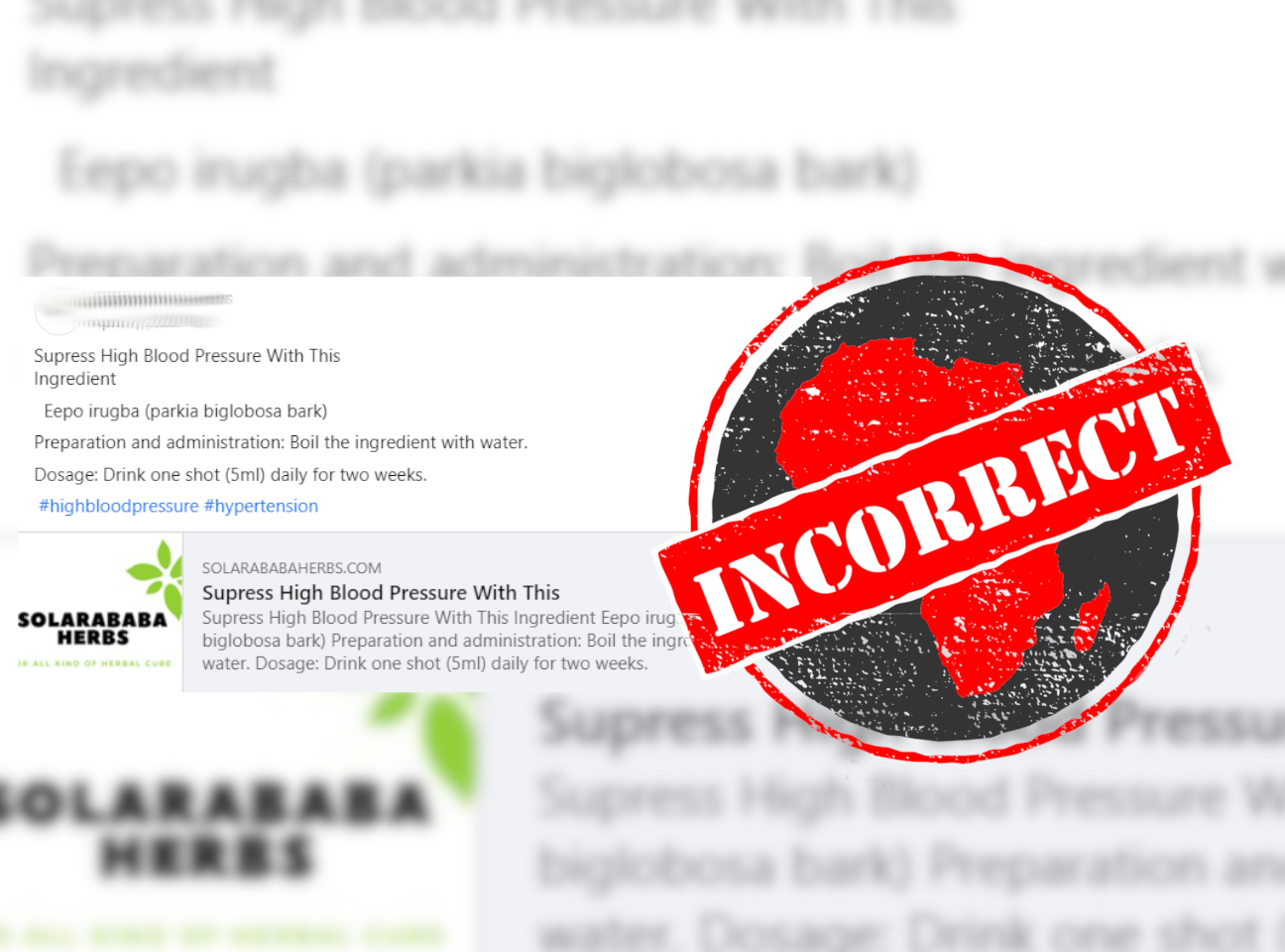A post on the Nigeria-based Facebook page “Solarababa herbs” claims the bark of the Parkia biglobosa tree will “suppress high blood pressure”.
It describes how to prepare and take the remedy. “Boil the ingredient with water. Drink one shot (5ml) daily for two weeks.”
But will this really reduce high blood pressure? We checked.

Visit a doctor for treatment
Parkia biglobosa, known as the African locust bean tree, is a multipurpose tree legume found in many African countries.
High blood pressure, or hypertension, is a serious medical condition where the blood pressure is persistently raised. It increases the risk of other serious health conditions like kidney problems and heart disease.
The World Health Organization says its African region has the highest prevalence of hypertension in the world – 27% of the global 1.13 billion people affected by the condition.
We asked Jacob Awobusuyi, a professor of medicine in the faculty of clinical sciences at Lagos State University, for his opinion of the remedy in the Facebook post.
“I am not aware of this and I have no information on it,” he said. “Treating hypertension is more than just taking hypertension drugs alone. Many other things are required in the management of the condition.”
Awobusuyi said that people with high blood pressure should see a doctor for proper evaluation and to get the right treatment.
According to the US Centers for Disease Control, regular blood pressure checks are the only way to know if you have hypertension. It adds that some of the ways to prevent high blood pressure are to eat a healthy diet, maintain a healthy weight, be physically active, limit alcohol intake and get enough sleep.
Africa Check has debunked a similar claim that powdered avocado seed would treat high blood pressure and other diseases.
Republish our content for free
For publishers: what to do if your post is rated false
A fact-checker has rated your Facebook or Instagram post as “false”, “altered”, “partly false” or “missing context”. This could have serious consequences. What do you do?
Click on our guide for the steps you should follow.
Publishers guideAfrica Check teams up with Facebook
Africa Check is a partner in Meta's third-party fact-checking programme to help stop the spread of false information on social media.
The content we rate as “false” will be downgraded on Facebook and Instagram. This means fewer people will see it.
You can also help identify false information on Facebook. This guide explains how.


Add new comment